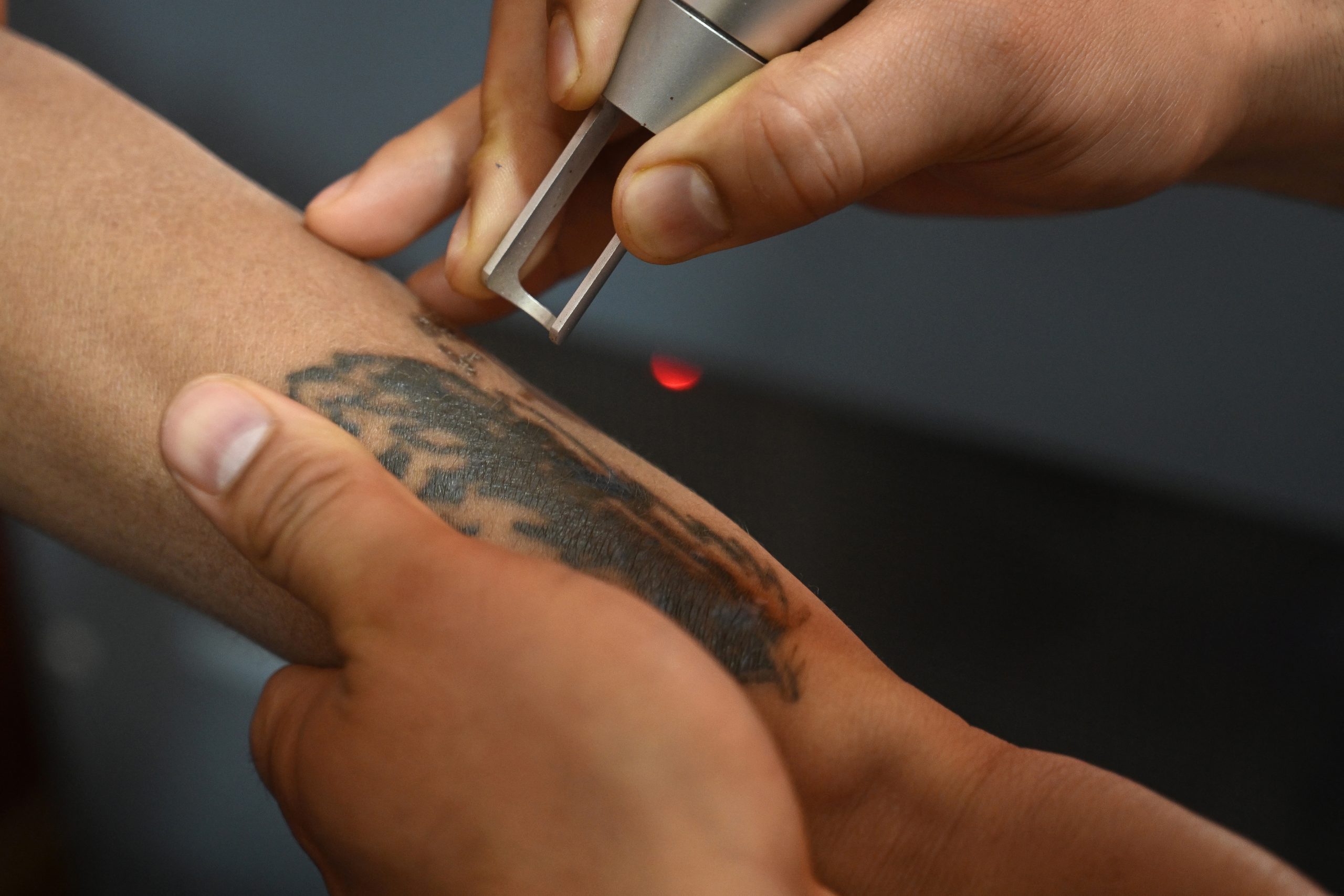- Saturday, May 03, 2025
The laser clinics in Srinagar are witnessing a rush of customers seeking the removal of tattoos of AK-47 rifle or Islamic symbols from the bodies, fearing police harassment

By: India Weekly
WITH security forces working overtime to nab the perpetrators of April 22 Pahalgam terror attack, thousands of Kashmiris with “resistance tattoos”, opposing New Delhi’s authority, have been lining up to scrub them from their bodies, fearing police retribution.
Basit Bashir, who runs a laser clinic in Srinagar, claimed that he receives up to 100 people, mostly men, every day.
“I have safely removed AK-47 and similar type tattoos from the arms and necks of more than 1,000 young people using laser,” Bashir (28) told AFP at his clinic.
The police have issued wanted posters for three men accused of carrying out the Kashmir attack – two Pakistanis and an Indian – who they say are involved in the attack.
India blames Pakistan for the attack, while Islamabad denies any role.
“After Pahalgam, we have seen a rise in the number of people with a crescent or AK-47 tattoos coming in for removal,” Bashir said.
One young man came in this week with an AK-47 tattoo after his friends suggested that he get it removed since the situation was “very precarious”, he said.
In Kashmir, body tattoos have been a form of political expression, like graffiti, since an armed rebellion against Indian rule erupted in 1989.
Many who grew up during the violent uprising had their bodies inked with symbols expressing not just resentment towards Indian rule but also their religious identity.
Bashir, the laser technician, said he initially started erasing tattoos depicting Muslim religious symbols.
“They wanted the tattoos removed, believing it was prohibited in Islam, and wanted to be buried as pure after death,” he said.
But others with pro-independence slogans started coming in big numbers after 2019, when New Delhi cancelled Article 370, which granted the region partial autonomy.
Thousands were arrested, and civil liberties were drastically curtailed.
Police and security forces increased surveillance following the 2019 change in the territory’s status.
They punished political expression hinting at resistance or a reference to the disputed nature of Kashmir in any form – even on social media.
“I started getting a stream of fearful young men and women seeking their tattoos to be safely removed,” Bashir said.
On some days, more than 150 people turned up at his clinic, prompting him to buy a new machine for a million rupees (nearly $12,000).
“Many of them told me their stories of being harassed by police for their tattoos showing any anti-India sentiment”, he said.
The rush for having tattoos erased for fear of police reprisal has now spawned more than 20 other laser clinics across Srinagar, charging between ₹300 and ₹3,000 rupees ($3.50-$35) for the job, depending on the tattoo’s size.
Sensing the rush, Bashir said he had trained in Gujarat state to learn how to erase tattoos safely.
“People come from all across Kashmir,” Bashir said. “Many have told me their horrific stories of facing police interrogation for their tattoos.”
Many were hesitant, fearful of speaking about younger motivations for the tattoo.
“I get rebuked by my family and school friends all the time for my tattoos,” a student said, clenching his teeth during the painful procedure.
“I can’t deal with it anymore, that is why I came here”.
Another, a lawyer hoping to find a match for marriage, said she had an assault rifle tattooed on her arm during the 1990s when the armed rebellion was at its peak.
“That is what I had seen all around me during my childhood – soldiers and militants wielding and firing from their AK-47s,” she said, declining to be identified for fear of reprisal.
“Everything has changed since then,” she said, showing the blisters that now replaced the rifle after two rounds of laser. “These things are trouble.” (AFP)